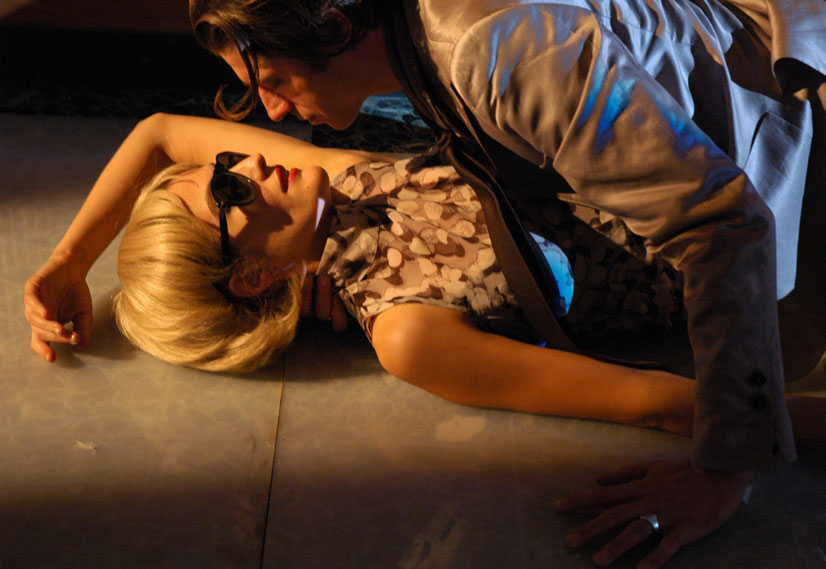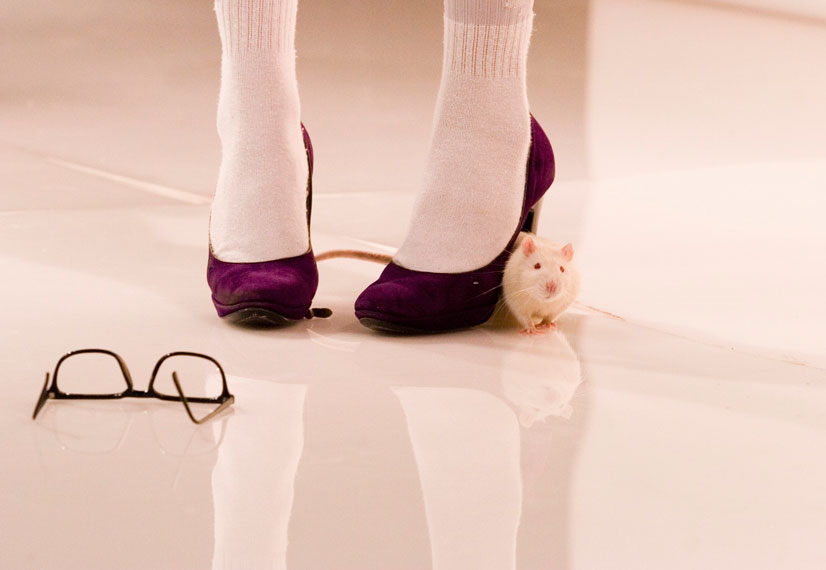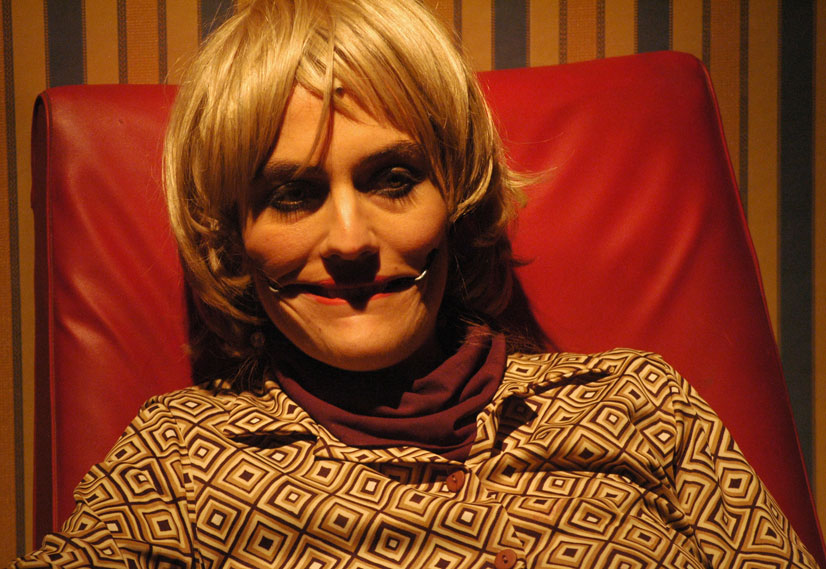
©Federica Giorgetti
Motus & Fassbinder
When love is colder than death
After Pasolini, the last and desperate Pasolini of Petrolio and Salò, we have decided that we must continue, with the same urgency, to re-explore a past that is becoming more and more recent, just a small glance back, toward that repressed history that in Europe continues to be peacefully sweetened, even more so after the fall of the Wall.
The age of collapse has ushered in, to quote Marco Belpoliti’s fine book, and it is from the chaos of garbage and rubble that The Host closes, – an after bomb – that we still look at today.
Throughout Fassbinder’s work there are echoes of the bombings of World War II, echoing in the rubble of the Berlin Wall and propagating with the roar of the Twin Towers: the collapse we all saw in real time. On television. And this din is at the heart of all the work on Fassbinder. An indistinct noise from which every now and then comes the fragment of some melody, some ditty played from an old record player… and it gives a glimpse of a distant couple dancing…
Assuming that Hitler is not so distant as the specter of Nazism and the racial purge… (“Hitler has survived” was also said in Twin Rooms…), let’s start a new project that goes digging inside a series of uncomfortable removals. One only has to do a simple Internet search to realize with horror how many thousands of neo-Nazi sites exist in the world, where icons, flags, music and ambiguous paraphernalia can be purchased online…an immense market that intersects with the sado-masochistic and snuff-movies market…
Initially intending to work on a longer-range theme on adolescence, throwing ourselves headlong into the contemporary, we then realized that we still needed time, that we wanted to deepen our reconnaissance among the images and words of those authors who–between the 1960s and the 1980s–determined our own artistic choices.
We postponed to 2007 X (Ics), the project on adolescence in the Italian and European urban suburbs, an articulated project that will not end only in the staging of a show, but of multiple events, from performance to installation, from theater to cinema.
With the project dedicated to Fassbinder, we are returning to the field to continue engaging with authors who have so much to do with what is happening here and now, with the small episodes of everyday fascism that we all suffer in utter disregard. In silence. Under glass. Like laboratory animals.
Fassbinder, who has always investigated servant-master dynamics and the subtle mechanisms of conditioning, was thus inevitable, as inescapable was entering the harrowing imagery of his filmic universe.
To rewrite an author, to enter his world, to dialogue with the ghost who, like Pasolini, takes on ever-changing guises and roles, (playwright, actor, director, filmmaker…) is still to embark on a journey, another tortuous itinerary filled with unexpected events, which demands time and cannot be exhausted in a single performance.
Going into Fassbinder’s specifics, we have “isolated” two souls in his work, one more “political” and related to the theme of power and intolerance, and the other more “melodramatic” and researched, rooted in the imagery of his great “master” of cinema, Douglas Sirk..
Reflexively, we derive two theatrical forms–one Open and one Closed–from different textual references, though subtly interconnected.
The Open project, which we title at its inception Small Episodes of Everyday Fascism, is developed by unique episodes/events, is loosely inspired by the anomalous theatrical-cinematic text Pre-paradise Sorry Now (1969) will remain continually at the mercy of transformations and adaptations to the contaminations solicited by places and people encountered along the nomadic path, which will see us involved in a long series of residencies.
The Closed one, on the other hand, is related to the staging of Rumore Rosa [*] a strictly female performance, which draws inspiration from Petra Von Kant’s The Bitter Tears still to go elsewhere, to move beyond the words of the text and arrive at a sound score, made up of acoustic evocations also of other extreme female figures, from the helpless Marta up to the desperate Elvira of Un anno con tredici lune… The show is performed by three actresses Emanuela Villagrossi, Nicoletta Fabbri and Silvia Calderoni.
[*] Pink noise, is the appellation given to the artificial frequencies that sound engineers use to highlight the optimal equalization curve in an environment intended to host a musical performance. It is so called as opposed to white noise. It is noise that lacks periodicity and contains frequencies from across the sound spectrum but, unlike white noise, at higher amplitude at low frequencies and lower amplitude at high frequencies, so as to accommodate the sensitivity of the human ear, which is less sensitive to lower frequencies.


